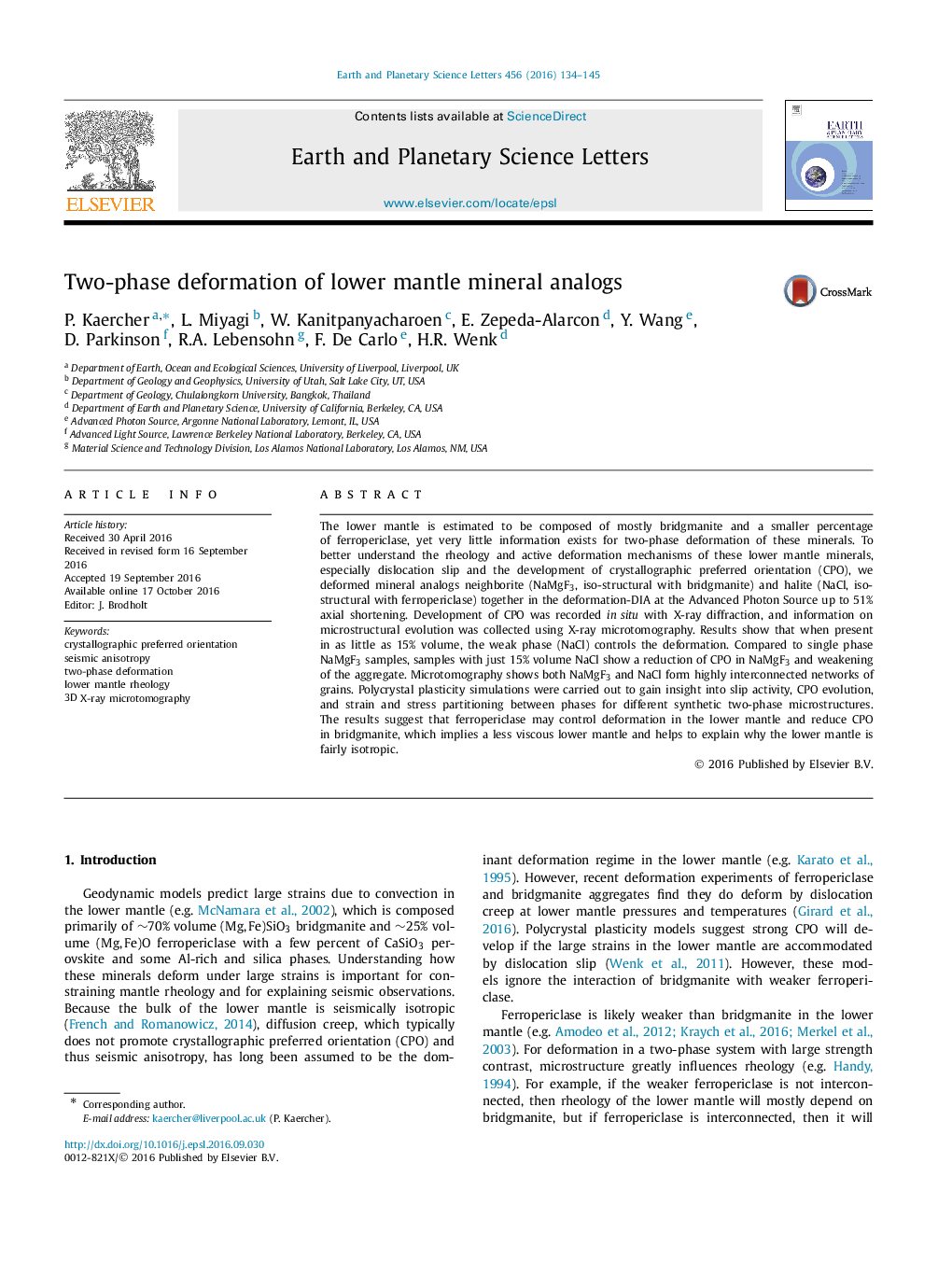| کد مقاله | کد نشریه | سال انتشار | مقاله انگلیسی | نسخه تمام متن |
|---|---|---|---|---|
| 6427078 | 1634700 | 2016 | 12 صفحه PDF | دانلود رایگان |
- First study of how volume percent of (Mg,âFe)O analog, NaCl, affects deformation and CPO in lower mantle analog assemblage.
- Weaker NaCl controls rheology at 15% volume.
- CPO in bridgmanite analog, NaMgF3, drastically reduced with 15% volume of NaCl.
- NaCl does not acquire any notable CPO.
- Results imply a weaker lower mantle and may explain why lower mantle is mostly isotropic.
The lower mantle is estimated to be composed of mostly bridgmanite and a smaller percentage of ferropericlase, yet very little information exists for two-phase deformation of these minerals. To better understand the rheology and active deformation mechanisms of these lower mantle minerals, especially dislocation slip and the development of crystallographic preferred orientation (CPO), we deformed mineral analogs neighborite (NaMgF3, iso-structural with bridgmanite) and halite (NaCl, iso-structural with ferropericlase) together in the deformation-DIA at the Advanced Photon Source up to 51% axial shortening. Development of CPO was recorded in situ with X-ray diffraction, and information on microstructural evolution was collected using X-ray microtomography. Results show that when present in as little as 15% volume, the weak phase (NaCl) controls the deformation. Compared to single phase NaMgF3 samples, samples with just 15% volume NaCl show a reduction of CPO in NaMgF3 and weakening of the aggregate. Microtomography shows both NaMgF3 and NaCl form highly interconnected networks of grains. Polycrystal plasticity simulations were carried out to gain insight into slip activity, CPO evolution, and strain and stress partitioning between phases for different synthetic two-phase microstructures. The results suggest that ferropericlase may control deformation in the lower mantle and reduce CPO in bridgmanite, which implies a less viscous lower mantle and helps to explain why the lower mantle is fairly isotropic.
Journal: Earth and Planetary Science Letters - Volume 456, 15 December 2016, Pages 134-145
